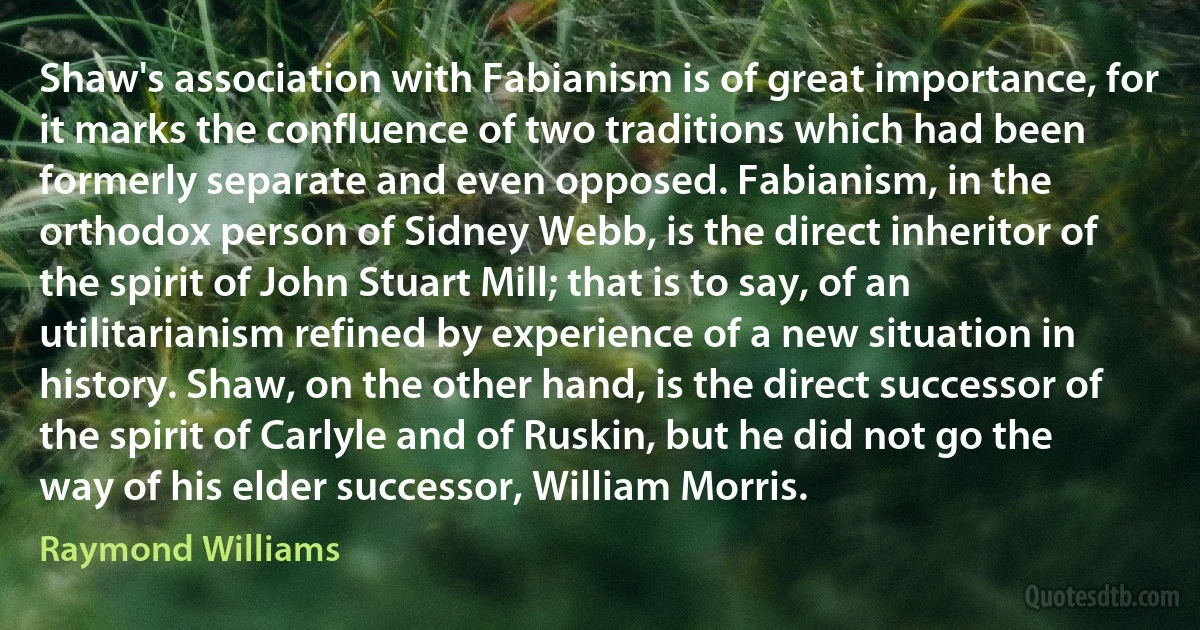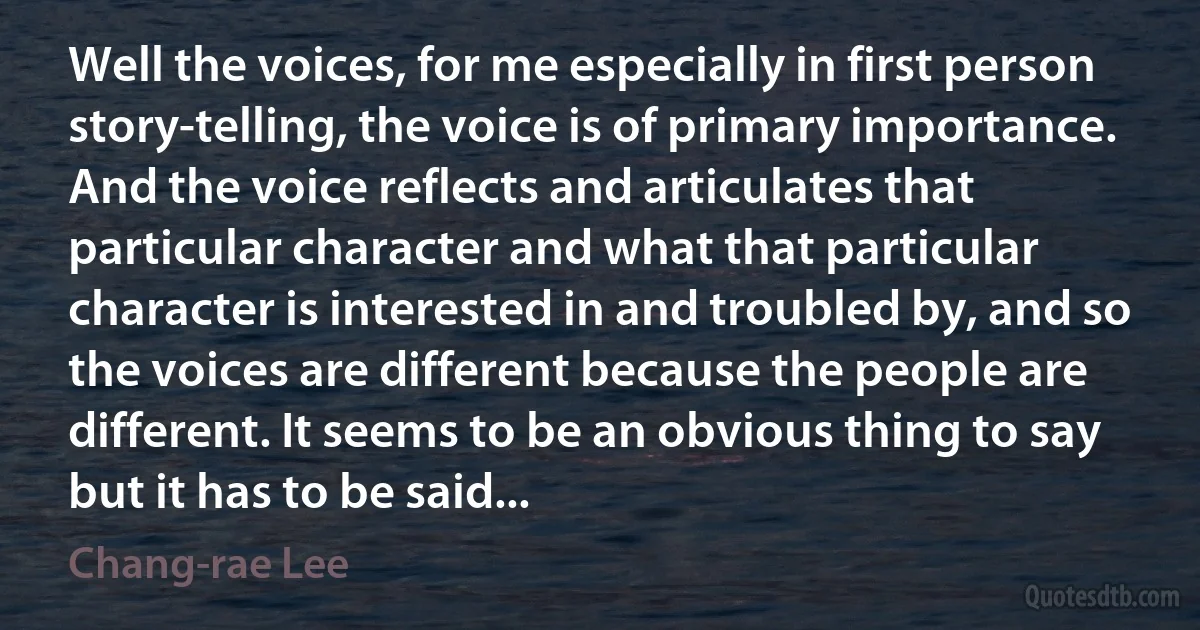Importance Quotes - page 61
A measure which makes at once 4,000,000 people voters who were heretofore declared by the highest tribunal in the land not citizens of the United States, nor eligible to become so (with the assertion that "at the time of the Declaration of Independence the opinion was fixed and universal in the civilized portion of the white race, regarded as an axiom in morals as well as in politics, that black men had no rights which the white man was bound to respect"), is indeed a measure of grander importance than any other one act of the kind from the foundation of our free Government to the present day.

Ulysses S. Grant
Marx's ideas became the doctrines inspiring the labour and socialist movements of most of Europe. Mainly via Lenin and the Russian Revolution they became the quintessential international doctrine of twentieth-century social revolution, equally welcomes as such from China to Peru. Through the triumph of parties identified with these doctrines, versions of these ideas became the official ideology of the states in which, at their peak, something like a third of the human race lived, not to mention political movements of varying size an importance in the rest of the world. The only individually identifiable thinkers who have achieved comparable status are the founders of the great religions in the past, and with the possible exception of Muhammad none have triumphed on a comparable scale with such rapidity. No secular thinker can be named beside him in this respect.

Eric Hobsbawm
Perhaps history this century, thought Eigenvalue, is rippled with gathers in its fabric such that if we are situated, as Stencil seemed to be, at the bottom of a fold, it's impossible to determine warp, woof, or pattern anywhere else. By virtue, however, of existing in one gather it is assumed there are others, compartmented off into sinuous cycles each of which had come to assume greater importance than the weave itself and destroy any continuity. Thus it is that we are charmed by the funny-looking automobiles of the '30's, the curious fashions of the '20's, the particular moral habits of our grandparents. We produce and attend musical comedies about them and are conned into a false memory, a phony nostalgia about what they were. We are accordingly lost to any sense of continuous tradition. Perhaps if we lived on a crest, things would be different. We could at least see.

Thomas Pynchon
The big bang is obviously one form of beginning, but the big bang in itself is unimaginable. It's one thing to think about God making a flower or infusing the planet with love, but to imagine what might be behind the big bang is so removed from real life that it actually loses importance for me. There's so much else to think about that's here and now. I like the Buddhist concept of beginning-less-ness, that the universe has always been going on.

Ursula Goodenough
Refined society requires greater minuteness of regulation; and the steps of all advancing States are more and more to be picked among the old rubbish and the new materials. The difficulty lies in discovering the right path through the chaos of confusion. The adjustment of mutual rights and wrongs is also more difficult in democracies. We do not see and estimate the relative importance of objects so easily and clearly from the level or the waving land as from the elevation of a lone peak, towering above the plain; for each looks through his own mist.

Albert Pike
Because of the central importance in Luther's thought of individual reading of the Bible, Protestantism encouraged literacy, not to mention printing, and these two things unquestionably encouraged economic development (the accumulation of ‘human capital') as well as scientific study. This proposition holds good not only in Prussia but also all over the world. Wherever Protestant missionaries went, they promoted literacy, with measurable long-term benefits to the societies they sought to educate; the same cannot be said of Catholic missionaries prior to Vatican II.

Niall Ferguson
If I had not existed, someone else would have written me, Hemingway, Dostoevsky, all of us. Proof of that is that there are about three candidates for the authorship of Shakespeare's plays. But what is important is Hamlet and A Midsummer Night's Dream, not who wrote them, but that somebody did. The artist is of no importance. Only what he creates is important, since there is nothing new to be said. Shakespeare, Balzac, Homer have all written about the same things, and if they had lived one thousand or two thousand years longer, the publishers wouldn't have needed anyone since.

William Faulkner
[Luigi Ferrarese] is an enlightened and philanthropic physician of Naples, who has for several years been zealously pursuing the study of Phrenology, and endeavouring to promote its application to those branches of science, morals and legislation, which he perceives it so well calculated to benefit. He has met with much persecution, but he has persevered, and it is with pleasure we perceive that there is one mind at least, in Naples, imbued with the importance of his views.

Luigi Ferrarese
The peculiar (or own) value that such and such activity can have for a man rather really depends ("dépend bien plutôt", Fr.) on the spirit in which it was deployed (or displayed, - "déployée", Fr.) than its importance or its scope. Thus the most humble work (or task, - "besogne", Fr.) can be accomplished by a great genius, whereas the highest functions (or offices), such as to rule over a whole people, can be practised in a petty (or mean or stingy) spirit of personal glorification, as it is frequently seen.", Fr.)

African Spir
"...Let us go," we said, "into the Sea of Cortez, realizing that we become forever a part of it; that our rubber boots slogging through a flat of eel-grass, that the rocks we turn over in a tide pool, make us truly and permanently a factor in the ecology of the region. We shall take something away from it, but we shall leave something too." And if we seem a small factor in a huge pattern, nevertheless it is of relative importance. We take a tiny colony of soft corals from a rock in a little water world. And that isn't terribly important to the tide pool. Fifty miles away the Japanese shrimp boats are dredging with overlapping scoops, bringing up tons of shrimps, rapidly destroying the species so that it may never come back, and with the species destroying the ecological balance of the whole region. That isn't very important in the world. And thousands of miles away the great bombs are falling and the stars are not moved thereby. None of it is important or all of it is.

John Steinbeck
It is only natural that I should constantly have revolved in my mind the question of the relationship of the symbolism of the unconscious to Christianity as well as to other religions. Not only do I leave the door open for the Christian message, but I consider it of central importance for Western man. It needs, however, to be seen in a new light, in accordance with the changes wrought by the contemporary spirit.

Carl Jung
I have one thing against medical technology. You see, the very desire to understand the human being is to control him - that is why I am not quite in sympathy. The day you control the endocrine glands, you will change the personality of man; you won't need any brainwashing. Brainwashing is a very elaborate process. If nature had been allowed to go on in its own way, everybody would have become a unique flower. Why should there be only roses in this world? What for? A grass flower or a dandelion flower has as much beauty, as much importance in the scheme of things. Why should there be only jasmine flowers, roses, or some other flower? So, the possibility is there of a change taking place which is sudden, not progressive. It has to happen in a very sudden and explosive way to break the whole thing.

U. G. Krishnamurti
Professor Henry Holzer of the Brooklyn Law School believes that together the Belle Terre (1974) and Moore (1971) decisions stand for the proposition that it is a collectivist-statist ideology, not a concept of individual rights, that lies at the base of official government thinking about the family. Further, when the Court reviews state definitions of, or intrusions into, the family, "the determinative criterion will be the importance of the state interest involved." Riga concludes that in 15 years of Supreme Court cases ending in 1979, the view of marriage as an indissoluble lifelong commitment had been abandoned. In its wake is the perverted notion of liberty that each individual should be able to live out his sexual life in any way he chooses without interference from the state. The consequences of such thinking have been previously discussed, and ironically create the very problems that society now calls on the federal government to solve.

Bob McDonnell
It is absurd to define God as omnipotent and then burden him with our own myopic view of the significance of human beings. [...] The concept of 'importance' is a human one born out of our need to make choices for survival. An omnipotent being has no need to rank things. To God, nothing in the universe would be more interesting, more worthy, more useful, more threatening, or more important than anything else.

Scott Adams
Conversation is more than the sum of the words. It is also a way of signaling the importance of another person by showing your willingness to give that person your rarest resource: time. It is a way of conveying respect. Conversation reminds us that we are part of a greater whole, connected in some way that transcends duty or bloodline or commerce. Conversation can be many things, but it can never be useless.

Scott Adams
With the present importance of the city [of Rome] and the unlimited numbers of its population, it is necessary to increase the number of dwelling-places indefinitely. Consequently, as the ground floors could not admit of so great a number living in the city, the nature of the case has made it necessary to find relief by making the buildings high. In these tall piles reared with piers of stone, walls of burnt brick, and partitions of rubble work, and provided with floor after floor, the upper stories can be partitioned off into rooms to very great advantage. The accommodations within the city walls being thus multiplied as a result of the many floors high in the air, the Roman people easily find excellent places in which to live.

Vitruvius
South Koreans are wonderfully tolerant of a foreigner with differing views when the discussion is in Korean, and no foreigners of importance are around. They lose their tempers when they see someone exporting information which - however widely discussed in the Korean press - is thought best kept "in country."

Brian Reynolds Myers
Everything I've learned in these nine years has been self taught - that's not to say I've had a lot of help along the way in terms of meeting so many amazing people in this industry. But I have always loved cooking, and I grew up cooking with my grandfather and my mother, and entertaining and cooking for people was always such of strong importance. And so I've just applied that same passion for food to truffles.

Ian Purkayastha
Up to now, the U.S. women's liberation movement has been mainly concerned with sexism and ignored or denied the importance of racism. For the Chicana, the three types of oppression cannot be separated. They are all a part of the same system, they are three faces of the same enemy.

Elizabeth Martinez
Cornel West, the African American philosopher and writer, spoke recently in San Francisco talking about the importance of linkages. For example, he said gay and lesbian rights are an issue in the African American community. They aren't separate, outside of the community. Just because the issue is not welfare, or racism, or gangs, that doesn't mean it's not a Black community issue. I think that's a very useful and important way to look at things. I know a lot of Latinos wouldn't agree that gay and lesbian rights are a Latino issue. But we need to work for this understanding and make it clear that the issue is not a problem for a bunch of people outside the Latino community who happen to be gay or lesbian. It's inside our community. Taking that kind of position is the only way that in fact makes sense.

Elizabeth Martinez
Temperament refers to the mode of reaction and is constitutional and not changeable; character is essentially formed by a person's experiences, especially of those in early life, and changeable, to some extent, by insights and new kinds of experiences. If a person has a choleric temperament, for instance, his mode of reaction is "quick and strong.” But what he is quick or strong about depends on his kind of relatedness, his character. If he is a productive, just, loving person he will react quickly and strongly when he loves, when he is enraged by injustice, and when he is impressed by a new idea. If he is a destructive or sadistic character, he will be quick and strong in his destructiveness or in his cruelty. The confusion between temperament and character has had serious consequences for ethical theory. Preferences with regard to differences in temperament are mere matters of subjective taste. But differences in character are ethically of the most fundamental importance.

Erich Fromm



